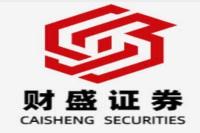海陆重工剥离新能源业务:战略调整还是无奈之举?
Meta Description: 海陆重工(002255)战略调整,出售金川新能源40%股权,背后原因及市场影响深度解读,专家分析及行业展望。
Whoa! Hold onto your hats, folks! The corporate world just threw us a curveball. 海陆重工 (002255), a name synonymous with…well, let's just say heavy industry, has just announced a major strategic shift. They're selling off their 40% stake in Jin Chuan New Energy Materials Technology Co., Ltd. for a cool 100 million yuan. This isn't just a minor tweak; this is a significant move that has sent ripples through the investment community. This detailed analysis dives deep into the implications of this divestment, exploring the potential motivations, market reactions, and future outlook for both 海陆重工 and the broader renewable energy sector. We'll sift through the speculation, separate fact from fiction, and provide you with a clear, concise, and – dare I say – electrifying understanding of this pivotal event. Prepare for a deep dive into the world of corporate strategy, financial maneuvering, and the ever-evolving landscape of the Chinese renewable energy market. We'll be looking at the numbers, dissecting the press release, and examining the wider context of this decision. Get ready to unravel the mystery behind this stunning announcement – it's a story filled with unexpected twists and turns! Are you ready to delve into the nitty-gritty? Let's go!
海陆重工 Strategic Shift: A Deep Dive into the Disposal of Jin Chuan New Energy Stake
The recent announcement by 海陆重工 (002255) regarding the sale of its 40% stake in Jin Chuan New Energy Materials Technology Co., Ltd. (金川新能源) for 100 million yuan has understandably sparked considerable interest and speculation. This wasn't a move made lightly – it represents a significant realignment of the company's strategic priorities. This section will delve into the specifics of this transaction, exploring the potential reasons behind the decision, and analyzing its impact on the company's future trajectory.
The official statement cites "optimizing industrial layout and resource allocation" as the primary reason for the divestment. While seemingly straightforward, this explanation warrants a closer look. Several factors could be at play here:
- Financial Restructuring: Perhaps 海陆重工 needed to shore up its financial position. The sale of the stake in Jin Chuan New Energy could provide a much-needed injection of capital, allowing them to focus on core businesses or address pressing financial obligations.
- Strategic Focus: Companies often divest from non-core assets to streamline operations and concentrate resources on their most profitable and promising ventures. This could signal a shift away from renewable energy investments towards other areas considered more strategically important.
- Market Dynamics: The renewable energy sector is notoriously volatile. Perhaps 海陆重工 assessed the market and determined that their investment in Jin Chuan New Energy wasn't yielding the expected returns, making the sale a prudent financial decision.
- Unexpected Challenges: We can't rule out unforeseen challenges within Jin Chuan New Energy that prompted 海陆重工 to cut their losses and exit the investment. This could range from operational difficulties to regulatory hurdles.
The sale of the stake doesn’t necessarily signal a complete abandonment of the renewable energy sector by 海陆重工. Rather, it suggests a change in approach. They might be reallocating resources toward more promising ventures within the clean energy space or focusing on different segments of the market.
Impact Analysis and Market Reaction
The market's reaction to this news will be crucial in understanding the true implications of this divestment. A positive market response could suggest investors approve of the strategic realignment and believe the freed-up capital will be used effectively. Conversely, a negative reaction could signal investor concerns about the long-term strategy of 海陆重工. Careful monitoring of stock prices and analyst reports in the coming weeks and months will be essential to gauge the overall market sentiment.
Further complicating the picture is the recipient of the stake – China Jin Chuan Investment Holding Co., Ltd. This relationship suggests a degree of pre-planning and a potentially smoother transition than a sale to an outside entity. This could alleviate concerns about disruption to Jin Chuan New Energy's operations.
Let's not forget the broader context. The Chinese renewable energy sector is experiencing significant growth, but also confronts challenges in terms of policy changes, competition, and technological advancements. 海陆重工's decision should be viewed within this dynamic environment.
The Future of 海陆重工 and the Renewable Energy Landscape
The divestment marks a turning point for 海陆重工, but it doesn't necessarily spell doom for their involvement in sustainable energy. In fact, this strategic shift might pave the way for a more focused and potentially more successful approach. The company might now channel their resources towards research and development of more innovative and efficient technologies or seek strategic partnerships with other players in the renewable energy field. This could lead to a more targeted and effective expansion in the long run.
The move also reflects a broader trend in corporate strategy. Companies are increasingly scrutinizing their portfolios, divesting from non-core assets to enhance profitability and focus on their core competencies. This is particularly evident in rapidly evolving industries like renewable energy, where companies need to adapt swiftly to changing market dynamics.
Key Takeaways and Future Outlook
This strategic move by 海陆重工 is complex and requires careful analysis. It's more than just a simple asset sale; it's a statement about the company's future direction. While the reasons remain somewhat opaque, the potential benefits of financial restructuring, strategic refocusing, or response to market pressures should not be discounted. The market's reaction and the company's subsequent actions will be key indicators of the success or failure of this strategic decision.
Frequently Asked Questions (FAQs)
Here are some frequently asked questions regarding 海陆重工's divestment of its stake in Jin Chuan New Energy:
-
Why did 海陆重工 sell its stake in Jin Chuan New Energy? The official statement cites optimizing industrial layout and resource allocation. However, other factors like financial restructuring, strategic refocusing, market dynamics, or unforeseen challenges could also have played a role.
-
What will 海陆重工 do with the proceeds from the sale? The exact allocation of the 100 million yuan hasn't been publicly disclosed. However, it's likely to be used for financial restructuring, investments in core businesses, or other strategic initiatives.
-
Does this mean 海陆重工 is abandoning the renewable energy sector? Not necessarily. The sale could represent a shift in strategy, focusing on different segments of the renewable energy market or other related technologies.
-
How will this impact Jin Chuan New Energy? The impact on Jin Chuan New Energy is yet to be seen. However, the sale to China Jin Chuan Investment Holding Co., Ltd., suggests a relatively smooth transition, potentially minimizing disruption to operations.
-
What is the market's reaction to this news? The market's initial reaction is mixed, requiring further observation. Long-term effects depend on how effectively 海陆重工 utilizes the proceeds and executes its revised strategy.
-
What's the future outlook for 海陆重工? The future outlook is uncertain but depends heavily on the success of their redefined strategic direction, the market's response to the divestment, and their ability to adapt to the changing landscape of both the heavy industry and renewable energy sectors.
Conclusion
The decision by 海陆重工 to divest its stake in Jin Chuan New Energy marks a significant turning point. While the precise reasons remain partly unclear, the move signals a strategic recalibration that demands close monitoring. The market's response and the company's future actions will be critical in determining the long-term implications of this substantial corporate reorganization. It's a fascinating case study in strategic decision-making within a dynamic and complex business environment, and we will be closely watching the unfolding narrative. Stay tuned!



